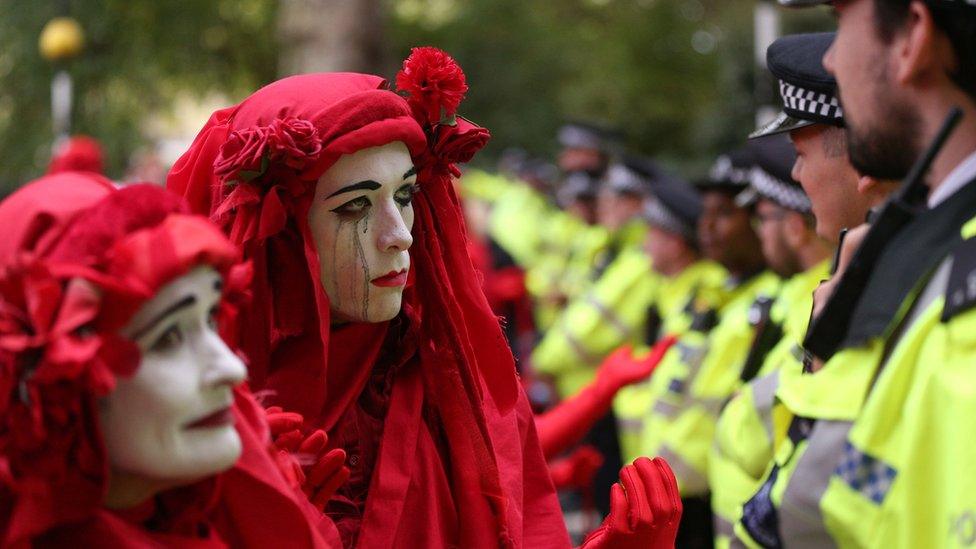Extinction Rebellion protests 'stretch' Met Police
- Published
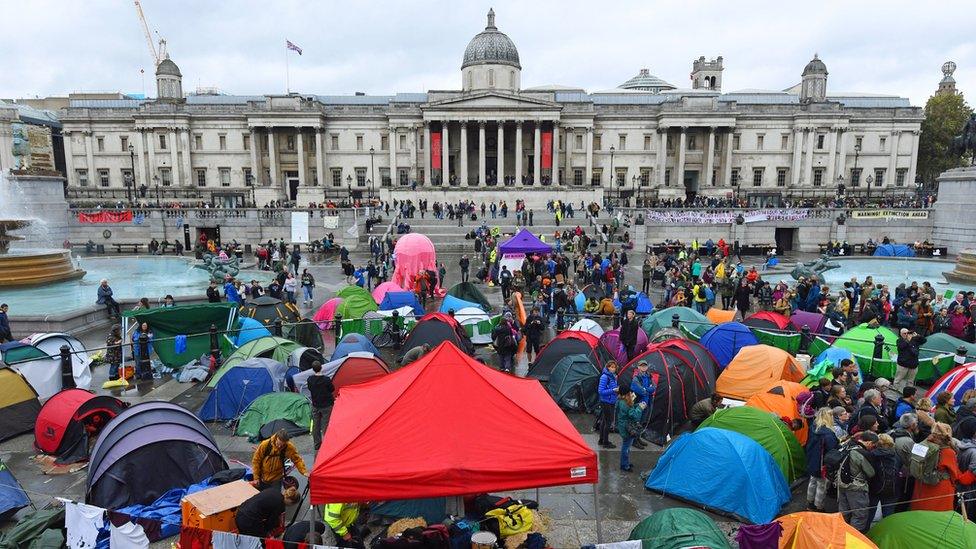
Extinction Rebellion protests have "stretched" police resources in London, the Metropolitan Police chief has said.
Dame Cressida Dick said she hoped the demonstrators would "protest lawfully" or "go home" after their "failure to take and occupy" certain streets.
A week of climate protests, including at Trafalgar Square and the BBC's New Broadcasting House, have seen more than 1,100 people arrested.
The movement said many protesters will "risk their liberty" for their cause.
Police have asked activists who have been demonstrating close to the Houses of Parliament in Westminster to move their protests in Trafalgar Square or risk arrest.
They served a Section 14 notice - designed to prevent "serious disruption" to communities - before removing those who had camped out in Westminster.
Dame Cressida said that if demonstrators protested lawfully she could deploy "many" officers "back to the streets, back to the neighbourhoods, back to the schools, back to the wards of the people of London".
"We are responding to all serious matters and urgent matters of course, carrying on with our crime investigations in homicide or armed robbery," she said.
"But we're having to move work from one unit to another and the less urgent, less critical, less important work of course gets delayed."
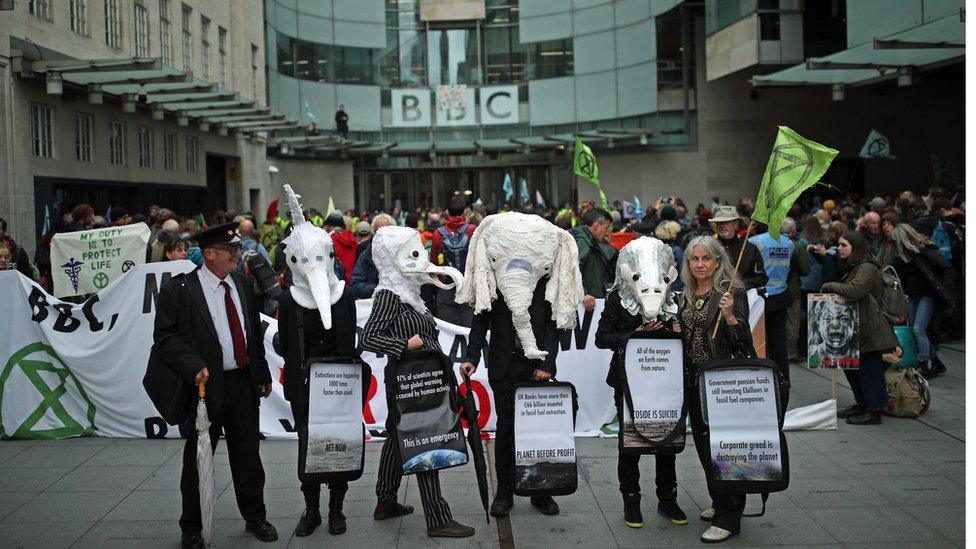
Responding to Dame Cressida's comments, Extinction Rebellion said it is a "peaceful non-violent movement" and that many protesters are "prepared to risk their liberty to stand up for the planet".
It added that young people are already experiencing "eco-anxiety" - a feeling of being overwhelmed by the existential challenge of climate change - and the police chief's response "is only going to make the situation worse".
Extinction Rebellion activists are protesting in cities around the world, including Berlin, Paris, Amsterdam and Sydney, and are calling for urgent action on global climate and wildlife emergencies.
As part of their protests on Friday, activists gathered outside tents at Trafalgar Square and blocked the entrance to the BBC's central London headquarters.
Jon Fuller, who is part of Extinction Rebellion's media team, said that while the BBC is reporting more on tackling climate change than ever before, it does not report "the most frightening" news stories.
The BBC said it covers "many climate change and environmental issues", adding that programmes such as Blue Planet II and Climate Change: The Facts have a "huge impact" on public debate.
"We know how important these issues are to audiences and will continue to focus on them across both news and non-news programmes, whilst internally doing all we can to lead the way in promoting sustainability in the media industry," it said in a statement.
On Thursday, a Paralympic medallist climbed on top of a British Airways plane at London City Airport.
Another man refused to sit in his seat, delaying a flight by nearly two hours.
Extinction Rebellion protester delays flight
About 50 arrests were made at the airport.
- Published14 April 2022
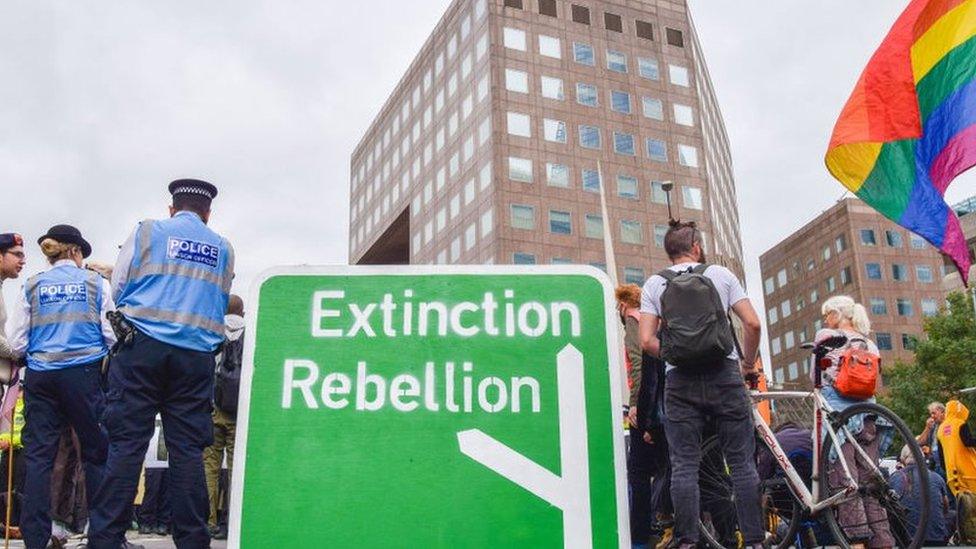
- Published10 October 2019
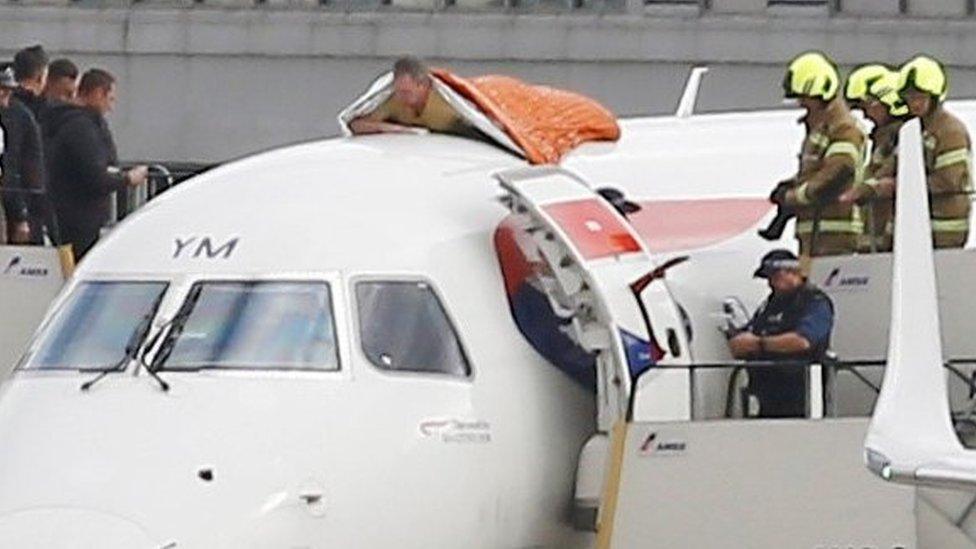
- Published8 October 2019
